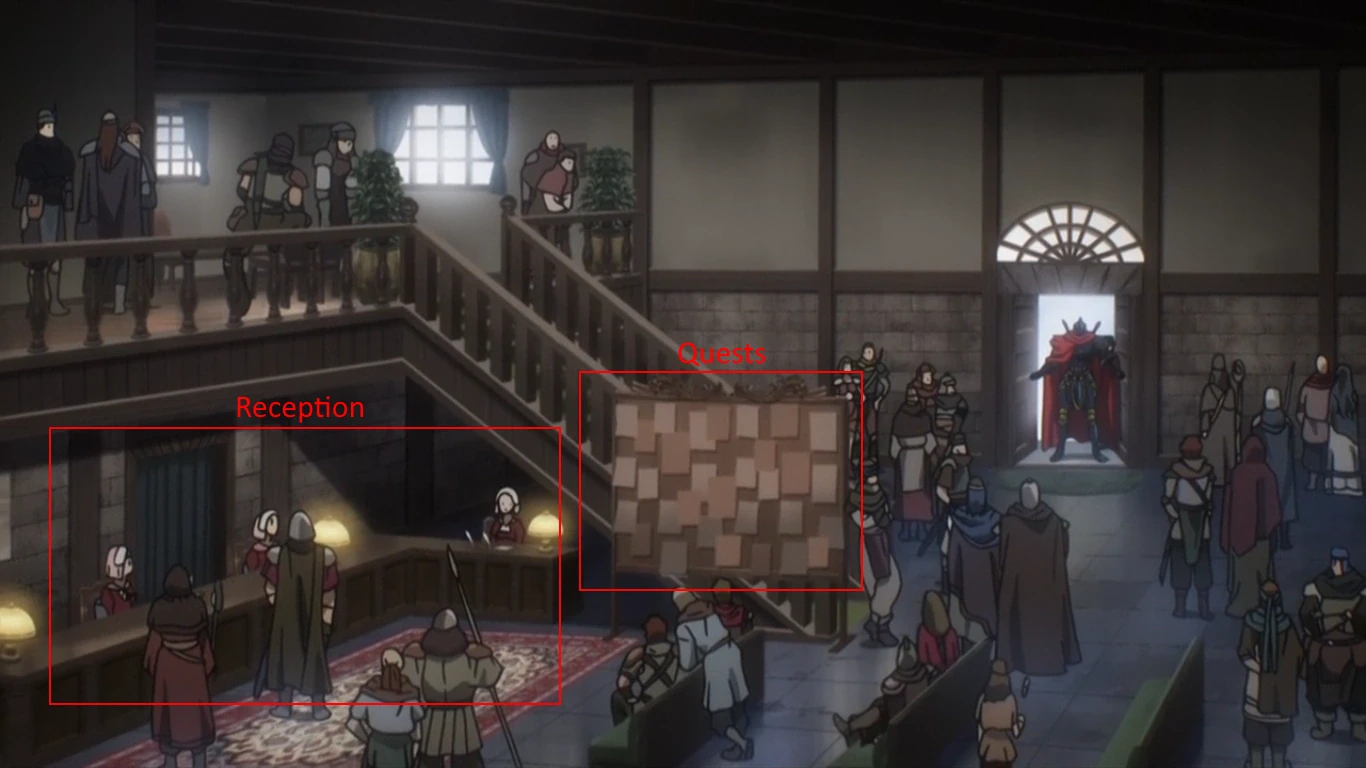Adventurer's Guild: Quest Mechanic
A recent idea I’ve had for a game is to run an adventurer’s guild…you know, like from those isekai fantasy anime where the protagonist is teleported into a magic fantasy land.

While not really similar to the real craft guilds of old, the guildhalls are commonly portrayed as a kind of tavern with a main desk where quests are given out, along with some housing. Adventurers (or sometimes, entire parties), have ratings issued by the guilds that restrict which quests one is allowed to take, for safety reasons, often varying from F (lowest) to A or S (most difficult).
Adventurers come in, pick a quest that they’re eligible for that they like, complete it, collect the reward, and repeat. Upon consistent success, they’re promoted to the next level up, sometimes requiring an "exam" for the higher levels.
Historically, real guilds were expected to maintain some minimum quality among their members' products, so that could be a similar justification to having levels here — the guild won’t send a rookie to complete an A-tier quest because they’re likely to fail and make the guild look incompetent.
Alright, that’s enough context. Where does the game come in?
At the most simple core of it, you have two sets of resources: quests (restocked daily) and adventurers (which take quests). Quests have various attributes; most obviously the challenge rating, but potentially more nuanced things as well. Adventurers also have ratings that they’re approved for.
So, grant the F-tier quests to the F-tier adventurers an the A-tier quests to the A-tier adventurers, right? Not so fast! The quests are on a metaphorical (or literal) corkboard and the player will have random access to them. But the adventurers are in a single-file line, and you can query the rating of the closest adventurer, but not the ones behind them.
Let’s say you have two quests available: an F-class and an E-class (E being more difficult), and you have two adventurers in line. You know the one you’re currently talking to is E-class. Do you give them the E-class quest or the F-class quest? Generally, you want to issue quests best matching their abilities. Let’s quickly explore all possibilities.
For simplicity, I’m going to name the adventurers after their current rating, based on the first letter of their name — Farquaad, Eugene, and Drakon.
If you give Eugene the E-class quest, they’ll be happy and leave. But the next adventurer could be Farquaad (in which case they’d be happy with the remaining F-class quest), or Drakon who won’t even take an F-class quest! If the second adventurer is indeed Drakon, then we could have distributed quests in either of the following ways:
E-quest -> Eugene 🙂; F-quest -> Drakon 🙁 F-quest -> Eugene 😒; E-quest -> Drakon 😒
In the first assignment, Eugene is happy while Drakon is unhappy (or perhaps won’t even accept the assignment). In the second, they’re both mildly unhappy.
The player won’t have perfect knowledge about who’s in line. However, they will be able to physically see who else is in line, and adventurers will be repeat customers with consistent appearance (mostly). So the player will be able to see "ah yes, Drakon’s here today". There will be other hints too, like party size and visibly-powerful items. Save the higher-level quests for the adventurer who’s levitating, yeah?
There will be also other dimensions to consider.
-
How happy is the adventurer? Maybe we need to give them the "best" quest in order to retain them.
-
What is the type of the quest — combat, investigation, escort? Not every adventurer likes every type.
-
Are there any unique elemental attributes to the quest? If there’s a fire newt on the loose, send a water mage!
Good pairings between quests and adventurers mean those adventures have better success — come back quicker, in better health, and happier. "Quicker" means they can pick up their next job sooner. Same for "better health". "Happier" means they’ll interact with your establishment more.
These are my thoughts on this aspect of the game so far — kind of a blend of Papers, Please and Recettear. Perhaps also like Moonlighter. However, unlike Moonlighter and Recettear, there’s no planned combat element; you’re entirely running a guild. It seems like a common theme in the subgenre to go collect the things that you’re selling, but in my opinion that’s not a proven formula. It does serve to add another action-y dimension of gameplay, though.